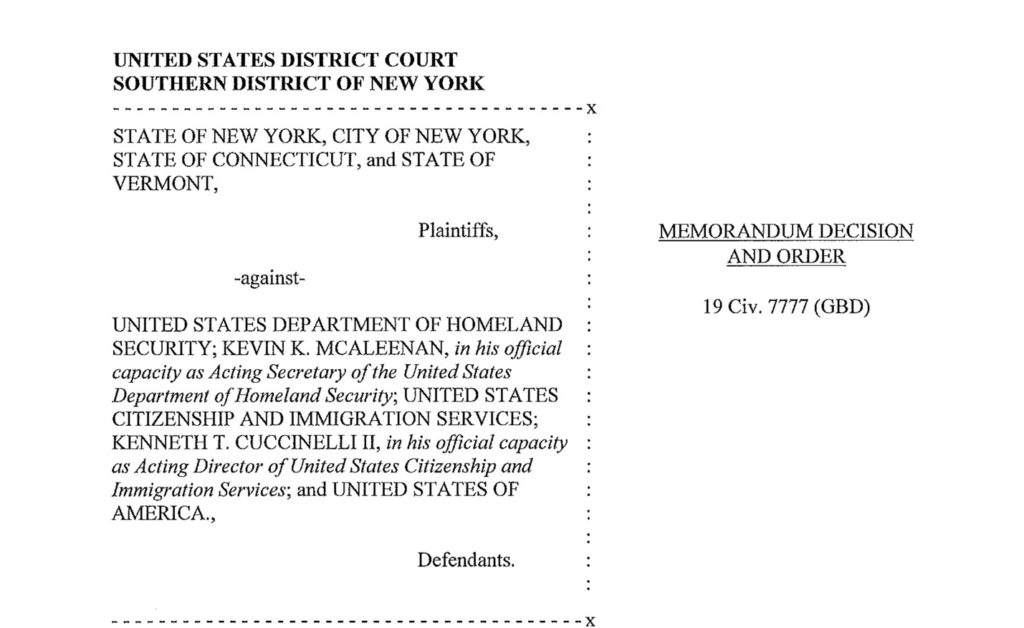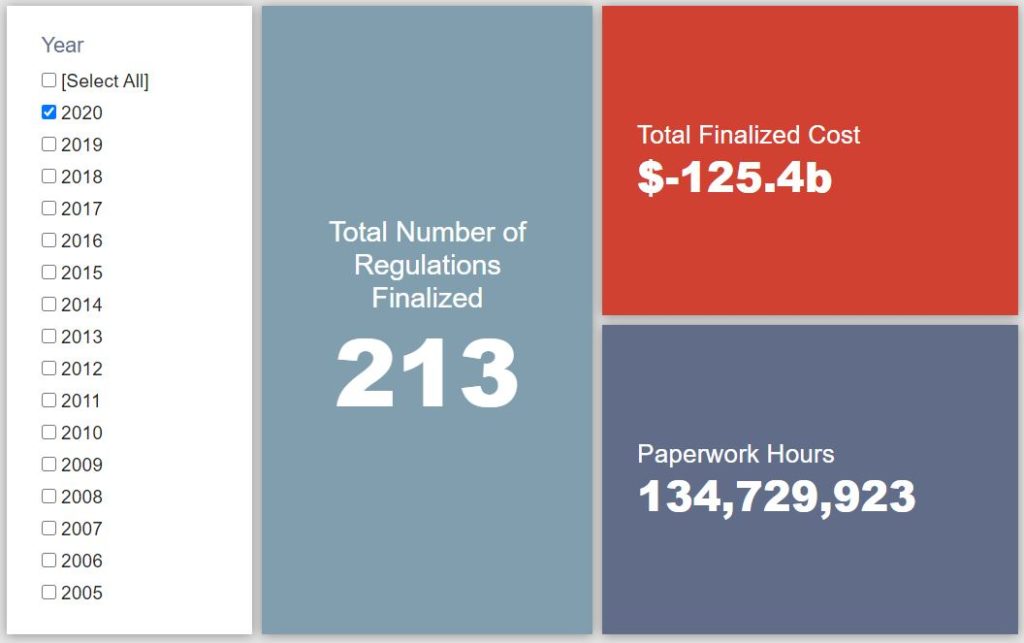Week in Regulation
August 3, 2020
VA Rule Drives Net-Regulatory Week
Relative to the week before it, last week saw a noticeable spike in activity in the Federal Register. There were 15 rulemakings with some quantified cost or savings estimate. The most consequential regulation of the week was a Department of Veterans Affairs (VA) rule updating standards surrounding family caregivers. Across all rulemakings, agencies published $1.3 billion in total net costs and added 44,039 hours of annual paperwork.
REGULATORY TOPLINES
- Proposed Rules: 38
- Final Rules: 66
- 2020 Total Pages: 46,467
- 2020 Final Rule Costs: -$125.4 billion
- 2020 Proposed Rule Costs: $7.8 billion
TRACKING THE REGULATORY BUDGET
The most notable rulemaking of the week for the purposes of the fiscal year (FY) 2020 regulatory budget under Executive Order (EO) 13,771 was VA’s rule regarding “Program of Comprehensive Assistance for Family Caregivers Improvements and Amendments Under the VA MISSION Act of 2018.” As the title suggests, the rule implements aspects of the VA MISSION Act. In particular, the rule updates relevant regulatory code involving the family caregivers “to better address the needs of veterans of all eras and standardize the program to focus on eligible veterans with moderate and severe needs.” VA estimates that such changes could yield $70.5 million in annualized costs, or roughly $1 billion in net present value under EO 13,771 accounting.
The Trump Administration expected to reach $51.6 billion in cumulative net savings in FY 2020. To date in the fiscal year, agencies have officially published 115 deregulatory actions and 39 regulatory actions, totaling $170.2 billion in quantified total net cost savings.
THIS WEEK’S REGULATORY PICTURE
This week, a federal court blocks implementation of the public charge rule during the COVID-19 emergency.

Source: https://www.nysd.uscourts.gov/sites/default/files/2020-07/State%20of%20New%20York%20et%20al%20v.%20United%20States%20Department%20of%20Homeland%20Security%20et%20al%2C%2019-cv-7777%20%28GBD%29.pdf
On July 29, a federal court in New York dealt a blow to the Department of Homeland Security’s (DHS) Inadmissibility on Public Charge Grounds rule. The rule, issued in August 2019, spells out under what conditions DHS can prevent immigrants from entering the United States, or remove them, if it finds they are likely to require certain government benefits.
The decision by the U.S. District Court for the Southern District of New York bars DHS from applying the rule during the COVID-19 national emergency. The court ruled that the public charge rule deters immigrants from seeking COVID-19 testing, which poses a public health risk.
In making the decision, Judge George B. Daniels cited that “doctors and other medical personnel, state and local officials, and staff at nonprofit organizations have all witnessed immigrants refusing to enroll in Medicaid or other publicly funded health coverage, or forgoing testing and treatment for COVID-19, out of fear that accepting such a that accepting such insurance or care will increase their risk of being labeled a ‘public charge.’” Accordingly, the rule directly results in immigrants facing the “impossible choice” of putting their health, and the public’s, at risk or their immigration status.
The judge found uncompelling that DHS has publicly stated that COVID-19 testing is not considered a benefit under which an immigrant could be considered a public charge. Even the mistaken belief that it could make someone a public charge is cause enough to block implementation of the rule due to the nature of the public health emergency, Daniels ruled. Further helping the plaintiffs’ case is that the judge believes the public charge rule is likely to be overturned on the merits as ongoing litigation progresses.
This marks the second time the implementation of the public charge rule has been blocked. Previously, several federal courts issued an injunction against the rule, but earlier this year the U.S. Supreme Court stayed the injunction allowing the rule to go into effect in February.
TOTAL BURDENS
Since January 1, the federal government has published $117.6 billion in total net cost savings (with $125.4 billion from finalized rules) and 152.8 million hours of net annual paperwork burden increases (with 134.7 million hours due to final rules). Click here for the latest Reg Rodeo findings.












